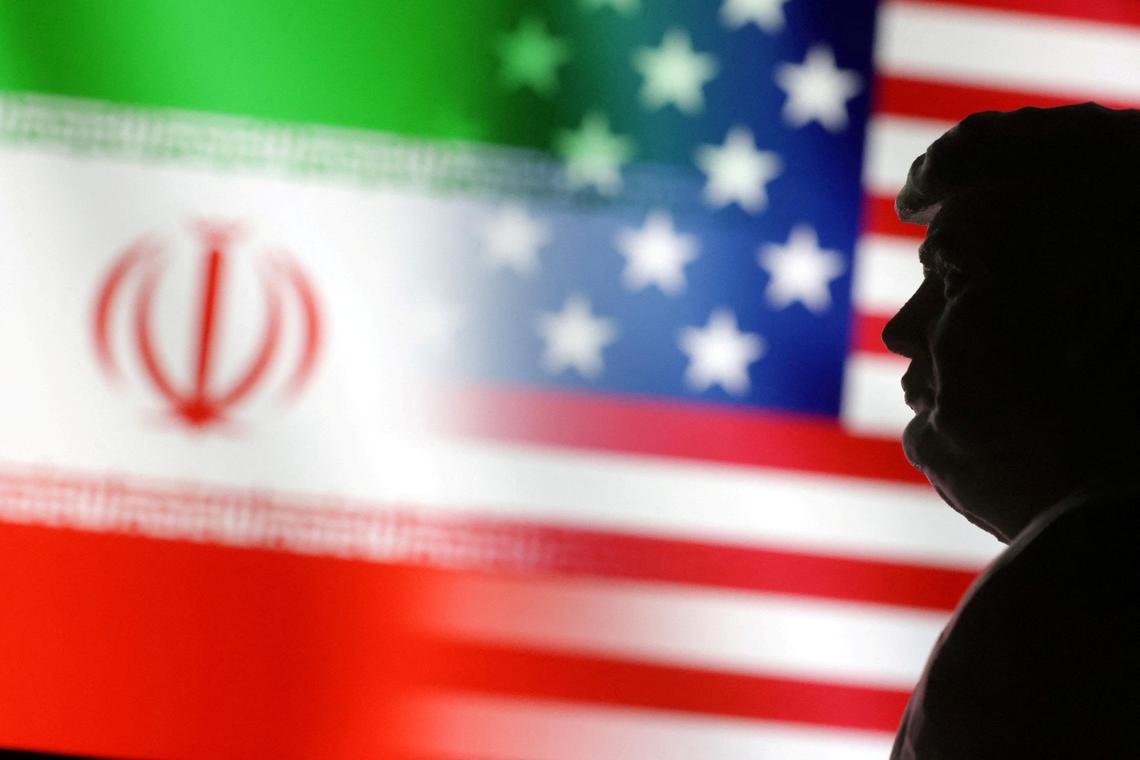WASHINGTON – US President Donald Trump said he wants to negotiate a nuclear deal with Iran and sent a letter to its leadership this week suggesting talks with the Islamic Republic, which the West fears is rapidly nearing the capability to make atomic weapons.
“I said I hope you’re going to negotiate, because it’s going to be a lot better for Iran,” Mr Trump said in the interview with Fox Business Network broadcast on March 7.
“I think they want to get that letter. The other alternative is we have to do something, because you can’t let another nuclear weapon.”
Iran has not yet received the letter, Iran’s mission to the United Nations in New York said on March 7.
There was no immediate response from the foreign ministry in Iran, where it is currently the weekend, to a request for comment on Mr Trump’s remarks.
Iran’s Nour News, affiliated with the country’s top security body, dismissed Trump’s letter as a “repetitive show” by Washington.
Asked whether he had sent the letter to Ayatollah Ali Khamenei, Iran’s fiercely anti-Western Supreme Leader, Mr Trump said, “Yes.”
“There are two ways Iran can be handled: militarily, or you make a deal,” Mr Trump said. “I would prefer to make a deal, because I’m not looking to hurt Iran. They’re great people.”
In the interview, conducted on March 6, Mr Trump said he sent the letter “yesterday”, indicating March 5.
Western officials fear a nuclear-armed Iran could threaten Israel, Gulf Arab oil producers, and spark a regional arms race.
Iran denies seeking nuclear weapons.
Mr Trump has upended US foreign policy after taking office in January, adopting a more conciliatory stance towards Russia that has left Western allies wary as he tries to broker an end to Moscow’s three-year-old war in Ukraine.
Mr Trump pulled out of the Iran nuclear deal, a multinational agreement to prevent Iran from building nuclear weapons, in 2018, a year into his first White House term.
He restored his “maximum pressure” campaign on Iran in February that includes efforts to drive its oil exports down to zero. However, he also said he would like to make a deal with Tehran.
It is unclear how Mr Trump’s overture to Iran would be received by US ally Israel, an arch foe of Tehran.
Iran and Israel mounted military strikes on each other last April and October.
The Israeli prime minister’s office did not immediately return a request for comment on Mr Trump’s letter to Iran.
Russia has offered to mediate between the United States and Iran, a source briefed on discussions told Reuters on March 4, as the Kremlin vowed to do everything possible to facilitate a peaceful solution to tensions over Tehran’s nuclear programme.
Russian Deputy Foreign Minister Sergei Ryabkov discussed international efforts to resolve the situation around Iran’s nuclear programme with Iranian ambassador Kazem Jalali, the Russian Foreign Ministry said on March 7.
Meanwhile, senior Russian missile specialists have visited Iran over the past year as the Islamic Republic has deepened its defence cooperation with Moscow, a Reuters review of travel records and employment data indicates.
Sanctions and diplomacy
After Mr Trump quit the nuclear agreement in 2018, Iran began moving away from its nuclear-related commitments under the 2015 deal between Iran and key world powers, which lifted sanctions on Iran in return for restrictions on its nuclear programme.
After taking office in January, Mr Trump also directed his UN ambassador to work with allies to “complete the snapback of international sanctions and restrictions on Iran”.
Britain, France and Germany told the United Nations Security Council in December that they are ready – if necessary – to trigger the restoration of all the international sanctions to prevent Iran from acquiring a nuclear weapon.
It was not the first time a US president has communicated with Iranian leaders.
Under Iranian law, the supreme leader, not the president, has the last say on key state matters like Iran’s foreign policy and the nuclear programme.
When US President Barack Obama took office in 2009, he offered Mr Khamenei direct engagement – provided Iran was serious about ending concerns over its nuclear programme.
Mr Obama twice wrote directly to Mr Khamenei, in 2009 and again in 2012.
Iranian officials in 2014 acknowledged that Tehran had replied to previous letters from Mr Obama, though it was not clear who specifically had responded.
Iran confirmed in 2013 that President Hassan Rouhani had exchanged letters with Mr Obama, confirming a rare contact between leaders of the two nations.
The United States and Iran cut diplomatic relations in 1980, after students and Islamic militants stormed the US Embassy in Tehran and took American diplomats hostage.
The full Trump interview will air over the weekend on Fox News’ “Sunday Morning Futures”. REUTERS
Join ST’s Telegram channel and get the latest breaking news delivered to you.
